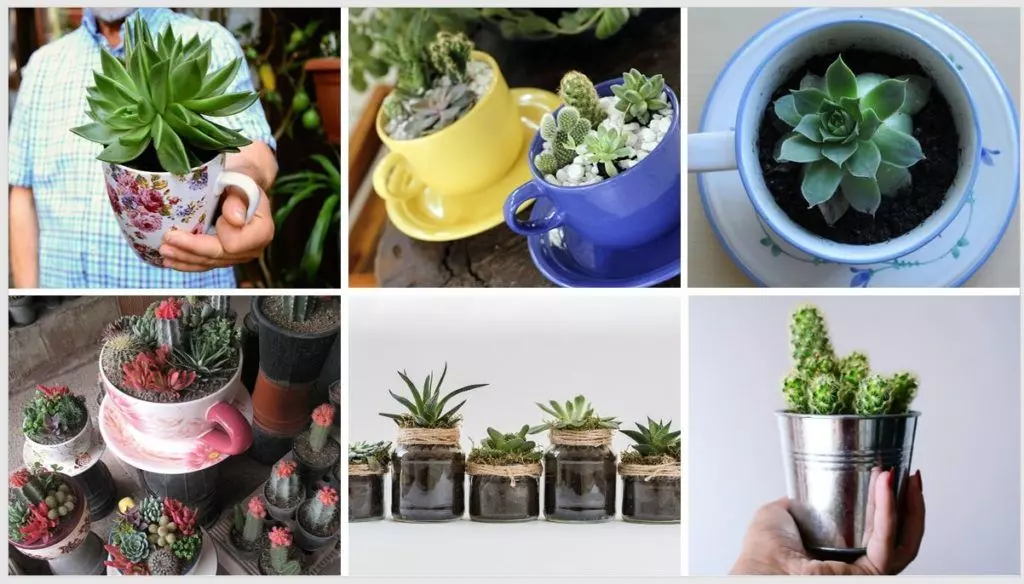How do you propagate succulents in the water? Does it work? Many blogs talk about propagating succulent plants and advise against reproducing the cuttings or leaves of these plants in water because of the danger of the stems and roots rotting. However, in this article, we explain everything you should learn to propagate succulents in water successfully with our step-by-step guide.
Table of Contents
Propagation of Succulents in Water
Let’s start with the basics: what do we mean by propagating or reproducing succulent plants in water?
To propagate or reproduce succulents in water is to use water as a means to root the cuttings or leaves of our succulent plants.
This can go against conventional thinking about succulents. What most people believe is that succulents do not like to be in contact with water too long because it promotes root rot.
Therefore, propagation in water may contradict what we thought we knew about the care and propagation of succulents. And yet, lately, I have heard more and more about water propagation.
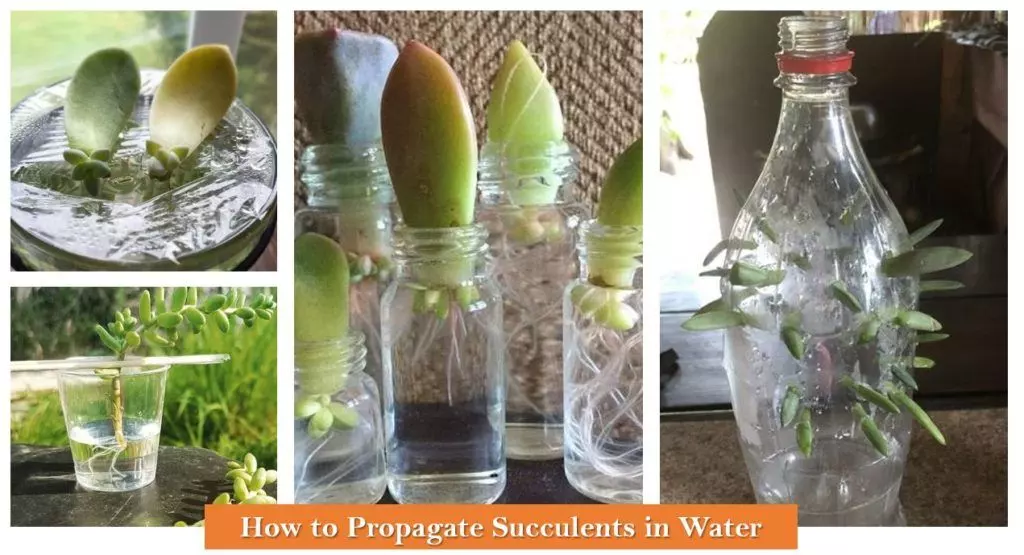
From what I have heard and read, some people find that propagating succulents in water is easier than the more “conventional” methods of rooting in the soil or a dry environment. I’ve read many success stories of individuals who weren’t successful with succulent propagation until they tried water propagation. Many people spread succulent cuts by the water method because the results are faster and more tremendous overall success.
When Propagating Succulents in Water: Why Don’t Succulent Cuttings Rot in Water?
One of the theories says the reason why succulent cuttings do not rot in water is that water is not the main culprit of rot.
Succulent plants that stay a long time in wet soil are exposed to fungi and pathogens in that soil that introduce diseases to the plant, causing root rot.
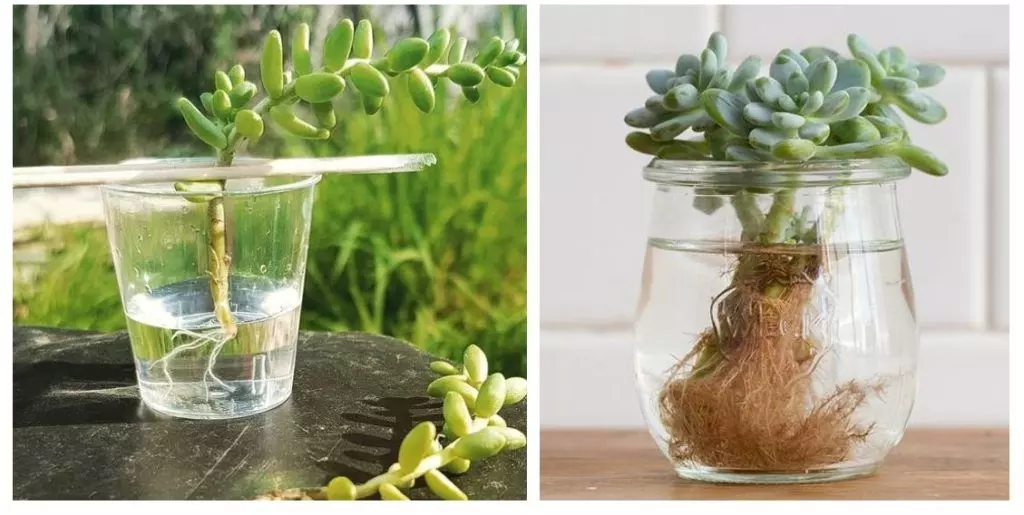
When propagated only in water, plants are not exposed to pathogens ordinarily present in the soil and, therefore, do not suffer from rot.
Once planted within the soil, they have to develop new roots that are more appropriate for growing within the soil.
However, those who reproduce succulents in water claim that the plants are fine once they are transplanted from water to soil.
For my part, I have usually had success with “soil breeding” of succulent cuttings, so I have not needed to experiment with “water breeding,” but I was curious to see how this method works.
Step-by-Step Propagating Succulents in Water
Let’s start with the step-by-step guide to propagate succulents in water, root them, and care for them until they successfully grow.
Cutting The Succulent Plant
- Cut the cuttings of the plants you want to reproduce
- Get a cutting from the stem of a succulent plant. Plants that have grown too tall or are spreading too thinly on the sides of the pot can be good candidates.
- The stem you cut should have about 2 inches of bare stem.
Note: you can also follow this method to reproduce succulent leaves in water. Choose healthy leaves, and you will have a better chance of success. Choose leaves that are not damaged, torn, or deformed. Look for whole, plump leaves, not dehydrated or flat leaves.
Let the Cuts Heal
Let the cuttings heal and dry. Allow the cut to dry for a couple of days until the end of the cut has dried or healed.
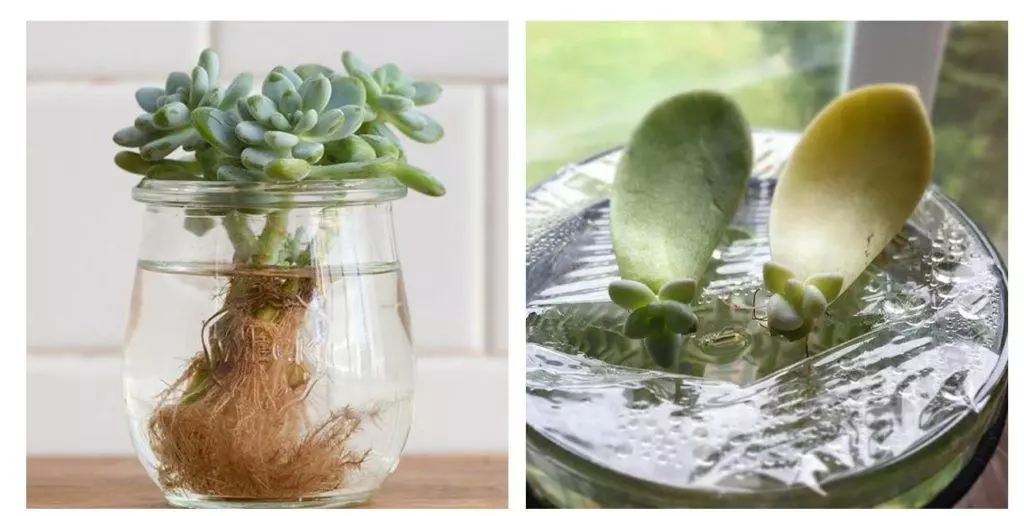
Place the Cuttings in the Water
Place the cuttings in water. Find a glass of the right size and add water. In this step, there are two options:
Position the cut so that the end of the stem or leaf is slightly above the water without touching it. Or, let the end of the cut be slightly submerged in the water.
Both methods seem to work (in this example, the cuttings were slightly submerged in the water).
Put them in a Bright Place
Please put them in a bright place. Leave the glasses in a sunny or well-lit area.
Wait for the Roots to Grow
Wait for the roots to grow slowly. You will have to fill the glasses with water as needed.
Plant the Rooted Cuttings
Once the roots have grown, let the cuttings and their new roots dry out for a few days. In this vital step, you are propagating succulents in water, for real!
Once dried, the rooted cuttings can be planted in a mixture suitable for cactus and succulents.
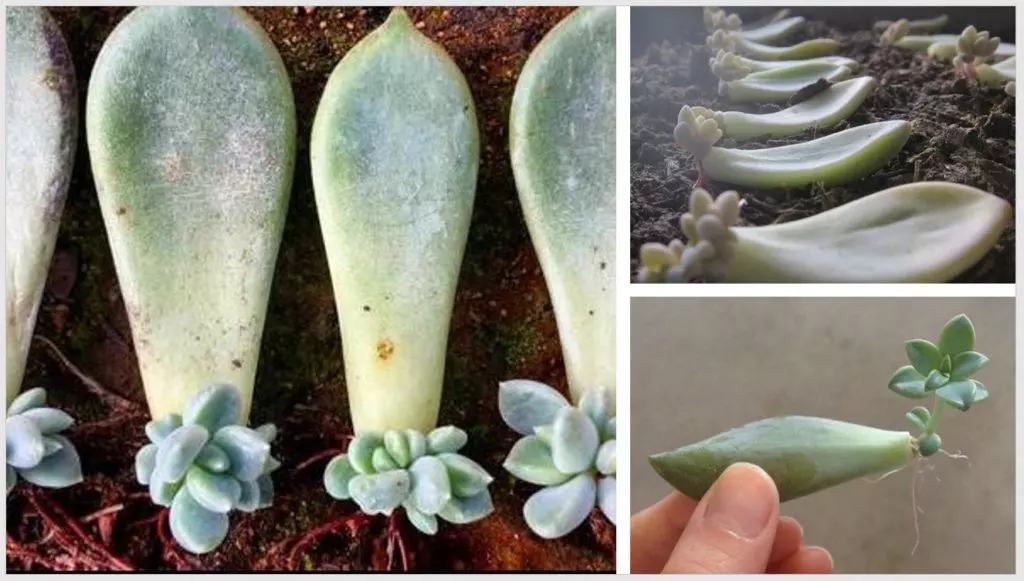
Water the New Plants
Water the New Plants when they need it. Young plants will need more moisture than mature plants. Lightly spray the soil with a spray bottle every few days or when the soil feels dry. Once the plant is more established and rooted, you can decrease the watering to about once a week.
Protect New Plants from Direct Sunlight
Protects new plants from direct sunlight when initially planted in their own pot to avoid sun damage. Gradually increases sunlight and sun exposure as the plant matures.
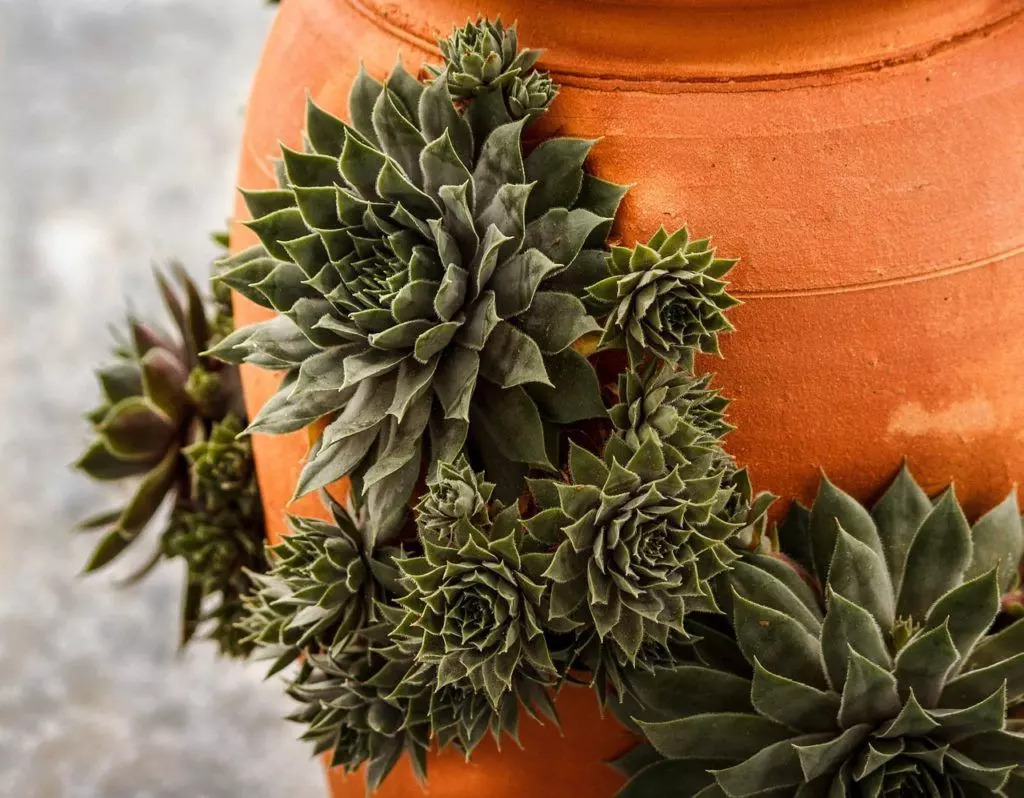
Can I Leave the Plants in Water?
Instead of planting the rooted cuttings, as explained in step 6, some people choose to leave the cuttings in water.
The cuttings will still live and survive within the water indefinitely. All you have to worry about is changing the water to fresh, clean water every few weeks or as needed.
Some people even have succulents that grow in water hydroponically. They like the way they look and are very successful in this way. They can be left outdoors or indoors, with lots of light.
Recommended reading: Black Spots on Succulents
